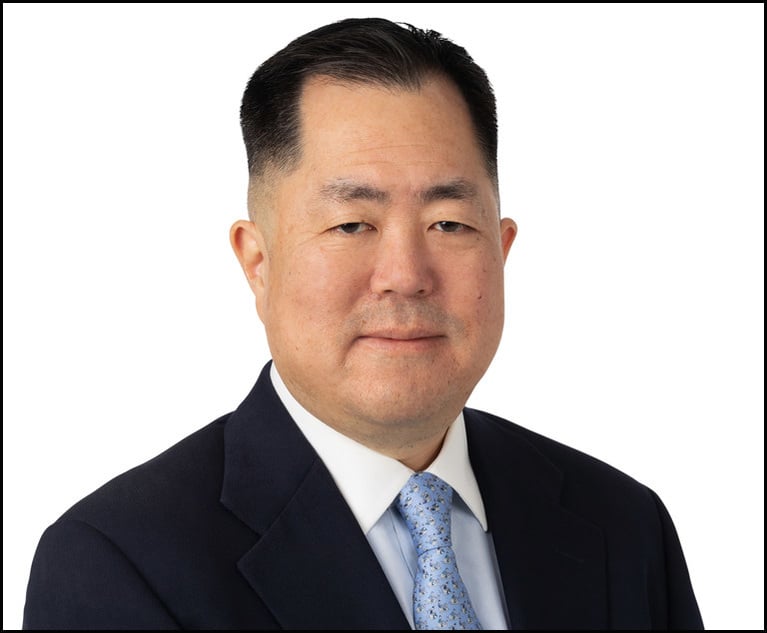 Collection of head shots representing the California plaintiffs bar. (Courtesy photos)
Collection of head shots representing the California plaintiffs bar. (Courtesy photos)California's Plaintiffs Bar More White, Male Than Private Bar as a Whole
According to a new survey by The Recorder, the state's largest plaintiffs firms have only 31.4% women attorneys—more than seven percentage points lower than private practice firms statewide.
May 15, 2019 at 10:48 PM
6 minute read
Plaintiffs lawyers like to say they represent the people.
But according to a recent survey conducted by The Recorder, the plaintiffs bar in California doesn't quite reflect the diverse population it purports to represent in the state, where minorities make up a majority of the population.
According to a diversity survey of plaintiffs firms conducted by The Recorder, 23.7% of the lawyers at 22 of the state's largest plaintiffs firms with 15 or more lawyers in California are minorities, and 31.4% are women.
Even in the legal profession, which has a dismal track record in terms of gender and ethnic diversity, those numbers mean the plaintiffs bar in California is underperforming compared with private practice firms as a whole. According to data from the National Association of Law Placement, 24.9% of all lawyers in California law firms are minorities and 38.18% are women, a full seven percentage points higher than what The Recorder found in the state's largest plaintiffs firms.
The Recorder consulted with industry groups and experts to determine which plaintiff-side firms had the largest head counts of lawyers in the state, then surveyed firm websites and publicly available records to get a preliminary count of total lawyers and breakdowns by gender and ethnicity. The Recorder then reached out to those firms that had 15 or more lawyers in the state asking them to confirm our counts, with the exception of firms that primarily represent plaintiffs in securities cases. Where firms responded with numbers that differed, we have relied on the firm's internal counts in our data set.
Where firms did not respond, The Recorder considered photographs of individual lawyers on firm websites and LinkedIn, a lawyer's memberships in affinity bar groups, and surnames when making individual race and gender determinations. There were two individual lawyers for whom no determination was made because of a lack of identifying information. The Recorder did not attempt to assess firms' LGBTQ diversity in this initial survey.
Some plaintiffs lawyers contacted for this report questioned whether the survey data provides an accurate snapshot of the plaintiffs bar's demographics given that the vast majority of plaintiffs lawyers in the state practice in firms smaller than those surveyed. Many women- and minority-owned firms who primarily represent plaintiffs, they point out, have fewer than 15 attorneys.
But many agreed that plaintiffs firms have a long way to go in order to better reflect the diverse client base they represent, especially in a state that has been majority-minority since 2000, according to census data.
“I think it's something that has to be addressed,” said Abbas Kazerounian, the founder of the Kazerouni Law Firm, which at 50% women and 50% nonwhite is among the most diverse of the plaintiffs firms surveyed. Kazerounian, who was born in Iran and educated in England, currently sits on the board of the Consumer Attorneys of California, the plaintiffs bar's largest statewide membership organization, and is a past chairman of its diversity committee.
“I think it's important because diversity is what speaks to people and people are our clients and clients are our livelihood,” Kazerounian said. “Unless you understand your clients' needs—how they're hurting, and why they're hurting—it's going to be hard to seek” justice on their behalf, he said.
Kazerounian said that the solution for recruiting and retaining diverse talent in all parts of the bar starts with the “grass roots.” On that front, he said that he and others at the CAOC have started to reach out to law school students to educate them about the organization and the opportunities to practice in the plaintiffs bar. Through the efforts of its diversity committee, new lawyers division, and women's caucus, CAOC has worked over the course of the decade to make sure that women and lawyers of color are represented on panels at its conferences and educational programs.
➤➤ Follow news related to class action and mass tort litigation with Critical Mass, a weekly email briefing from Law.com. Learn more.
Micha Star Liberty of the Liberty Law Office in Oakland, the incoming president of CAOC for 2020, was a founder of the organization's diversity committee early in the decade. “There's a pox on everyone's house. There's so much bias—implicit and overt—in the law in general,” says Liberty, pointing out that the overall numbers point to problems recruiting and retaining diverse candidates in all parts of the bar.
But Liberty adds that plaintiffs firms face structural challenges in recruiting new, diverse attorneys to the consumer-facing practice that large defense firms might not have. For one, she said new lawyers are entering the profession with unprecedented levels of debt. The small size and contingency fee-based model of plaintiffs firms means they have trouble paying competitive salaries to diverse candidates, who are in demand elsewhere in the profession.
Liberty, however, said she thought the numbers collected by The Recorder could be skewed by another phenomenon. “When a woman is unable to advance because a firm is small, they go out on their own,” said Liberty, who started her own small shop after practicing in a larger firm. “You see a lot of sole practitioners who are diverse in some way—something other than what I like to call the stale, pale and male.”
Joseph Cotchett, whose firm Cotchett, Pitre & McCarthy was among the largest of the firms surveyed with 31 attorneys, said that the plaintiffs bar, and the bar as a whole, has made significant leaps since he started practicing 50 years ago. Still, he said that his firm has had to work hard to attract and retain women with trial experience, especially with three of his firm's female partners being elevated to the bench: U.S. District Judge Susan Illston, and San Mateo Superior Court Judges Nancy Fineman and Marie Weiner. Cotchett, whose firm has 12 women, or 38.7% of its attorneys, said that he could not imagine going to trial today without having a woman on his trial team.
Says Cotchett: “Women are where the world is moving.”
Chart by David Palmer.
This content has been archived. It is available through our partners, LexisNexis® and Bloomberg Law.
To view this content, please continue to their sites.
Not a Lexis Subscriber?
Subscribe Now
Not a Bloomberg Law Subscriber?
Subscribe Now
NOT FOR REPRINT
© 2025 ALM Global, LLC, All Rights Reserved. Request academic re-use from www.copyright.com. All other uses, submit a request to [email protected]. For more information visit Asset & Logo Licensing.
You Might Like
View All
Law Firms Close Southern California Offices Amid Devastating Wildfires

Husch Blackwell Hires Former Adobe Counsel to Oversee AI Advisory Offering
3 minute read
Legal Tech's Predictions for Artificial Intelligence in 2025
Trending Stories
- 1Appellate Division Rejects Third Circuit Interpretation of NJ Law, Says No Arbitration for Insurance Fraud
- 2'Merciless' Filing Deadline Dooms Cuban Americans' Property-Trafficking Suit Against BNP Paribas, SocGen
- 3In 2-1 Ruling, Court Clears Way for Decade-Old Wrongful Imprisonment Suit
- 4Trump Sentencing, TikTok Ban Welcome Justices Back to Work
- 5U.S. Eleventh Circuit Remands Helms-Burton Trafficking Case Involving Confiscated Cuban Port
Who Got The Work
Michael G. Bongiorno, Andrew Scott Dulberg and Elizabeth E. Driscoll from Wilmer Cutler Pickering Hale and Dorr have stepped in to represent Symbotic Inc., an A.I.-enabled technology platform that focuses on increasing supply chain efficiency, and other defendants in a pending shareholder derivative lawsuit. The case, filed Oct. 2 in Massachusetts District Court by the Brown Law Firm on behalf of Stephen Austen, accuses certain officers and directors of misleading investors in regard to Symbotic's potential for margin growth by failing to disclose that the company was not equipped to timely deploy its systems or manage expenses through project delays. The case, assigned to U.S. District Judge Nathaniel M. Gorton, is 1:24-cv-12522, Austen v. Cohen et al.
Who Got The Work
Edmund Polubinski and Marie Killmond of Davis Polk & Wardwell have entered appearances for data platform software development company MongoDB and other defendants in a pending shareholder derivative lawsuit. The action, filed Oct. 7 in New York Southern District Court by the Brown Law Firm, accuses the company's directors and/or officers of falsely expressing confidence in the company’s restructuring of its sales incentive plan and downplaying the severity of decreases in its upfront commitments. The case is 1:24-cv-07594, Roy v. Ittycheria et al.
Who Got The Work
Amy O. Bruchs and Kurt F. Ellison of Michael Best & Friedrich have entered appearances for Epic Systems Corp. in a pending employment discrimination lawsuit. The suit was filed Sept. 7 in Wisconsin Western District Court by Levine Eisberner LLC and Siri & Glimstad on behalf of a project manager who claims that he was wrongfully terminated after applying for a religious exemption to the defendant's COVID-19 vaccine mandate. The case, assigned to U.S. Magistrate Judge Anita Marie Boor, is 3:24-cv-00630, Secker, Nathan v. Epic Systems Corporation.
Who Got The Work
David X. Sullivan, Thomas J. Finn and Gregory A. Hall from McCarter & English have entered appearances for Sunrun Installation Services in a pending civil rights lawsuit. The complaint was filed Sept. 4 in Connecticut District Court by attorney Robert M. Berke on behalf of former employee George Edward Steins, who was arrested and charged with employing an unregistered home improvement salesperson. The complaint alleges that had Sunrun informed the Connecticut Department of Consumer Protection that the plaintiff's employment had ended in 2017 and that he no longer held Sunrun's home improvement contractor license, he would not have been hit with charges, which were dismissed in May 2024. The case, assigned to U.S. District Judge Jeffrey A. Meyer, is 3:24-cv-01423, Steins v. Sunrun, Inc. et al.
Who Got The Work
Greenberg Traurig shareholder Joshua L. Raskin has entered an appearance for boohoo.com UK Ltd. in a pending patent infringement lawsuit. The suit, filed Sept. 3 in Texas Eastern District Court by Rozier Hardt McDonough on behalf of Alto Dynamics, asserts five patents related to an online shopping platform. The case, assigned to U.S. District Judge Rodney Gilstrap, is 2:24-cv-00719, Alto Dynamics, LLC v. boohoo.com UK Limited.
Featured Firms
Law Offices of Gary Martin Hays & Associates, P.C.
(470) 294-1674
Law Offices of Mark E. Salomone
(857) 444-6468
Smith & Hassler
(713) 739-1250







